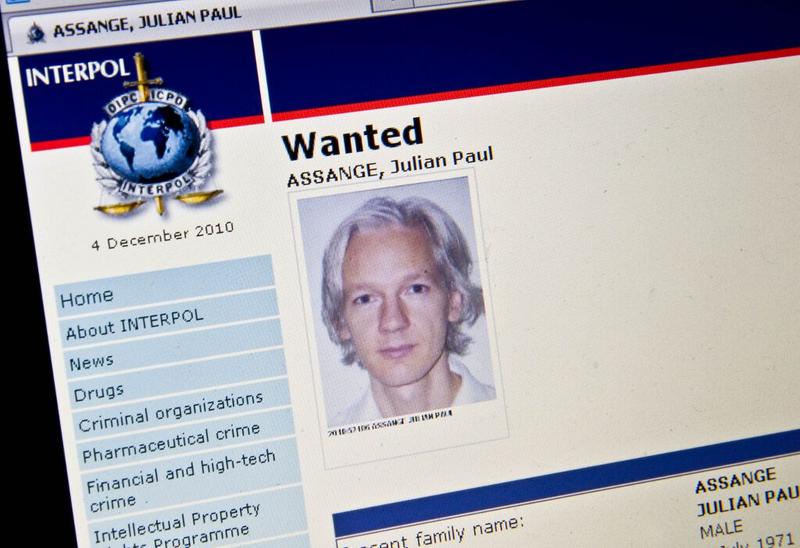
Welcome to Politics Bites, where every afternoon at It's A Free Country, we bring you the unmissable quotes from the morning's political conversations on WNYC. Today on the Brian Lehrer Show, James Goodale, former vice chairman and general counsel of The New York Times and a lead lawyer in the Pentagon Papers case, discussed the WikiLeaks case on the 40th anniversary of the Supreme Court's Pentagon Papers decision.
James Goodale is using the 40th anniversary of the Pentagon Papers to warn about what he sees as President Obama trying to silence another news organization, in this case, WikiLeaks. The Obama administration is trying to charge Julian Assange and WikiLeaks with conspiracy to commit espionage—the same statute the Nixon administration tried to pin on the Times. In this pursuit, the Justice Department has issued subpoenas to an extended network of people in the so-called hacking community.
Obama: Not so transparent
Goodale contends that Obama is actually one of the worst Presidents we've had with respect to dealing with national security and press freedom.
The great vice in what the government is trying to do is that it's trying to criminalize the journalistic process with respect to getting information that's classified. If in fact they can succeed in the Assange case, they will be taking away a journalistic right that journalists have had for years, which is to talk to a variety of people in order to gather information.
Due to the Pentagon Papers decision, the government can't stop Assange from publishing on his website, so they're trying to show there's a conspiracy, a criminal conspiracy, among members of the hacking community. This includes Private Bradley Manning, who leaked the material to Assange, and other hackers and Wikileaks enablers, and this way the government is hoping to get an indictment against Assange. Goodale says it's a parallel to what the Nixon government tried, unsuccessfully, to do to Neil Sheehan, the Pentagon Papers New York Times Reporter. Goodale surmises that the U.S. response to Wikileaks is due to an archaic understanding of the media landscape.
I do think that the way information is spread around the globe in a way that we haven't seen before startles people. And that the idea of Wikileaks being a repository for information may seem offensive to those who aren't familiar with it but I will note that the Wall Street Journal now has its own Wikileaks place for receiving information. So I think the response of indeed it took place is antediluvian, that is it reflects the past view of how information was transported around the world.
But is Julian Assange really like Daniel Ellsberg?
His stated agenda is not journalistic by any traditional definition, Assange has said he wants to label the U.S. as abusive and to make it reform, or to cause it to cease to be efficient through WikiLeaks sabotage.
I think he's playing both roles. He's a publisher same as the Times is and he's a source, journalists can be sources, and in this particular instance, his role as a source is no different than Daniel Ellsberg's, whose mission was to get the United States to stop the Vietnam War by publishing the Pentagon Papers.
But Daniel Ellsberg said last year on the Brian Lehrer Show that he sees Private Manning as his equivalent, not Julian Assange--who he sees as personifying the New York Times of 1971. But Goodale doesn't think that Private Manning should get off, or that it's a correct parallel.
We have to reflect on the fact that the amount of information that Manning let out is extraordinary, it's in the nature of a data dump and doesn't bring the same sympathy to us that the release of information that Daniel Ellsberg's does.
Secrets are things that damage national security. "There is not one piece of information in the Pentagon Papers that damages national security," Goodale said. And Wikileaks? Even less so, according to the attorney.
Read James Goodale's article in The Daily Beast.